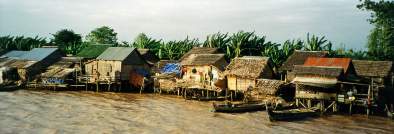

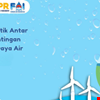
/ Southeast Asia
Thematic Consultation Multi-stakeholders in the Water Resources Sector
In commemoration of World Water Day 2024 and to support the 10th World Water Forum, GWP Indonesia is holding a series of activities through the 5th Indonesian Water Forum. The series of activity started by multi-stakeholders’ consultation in collaboration with Ministry of Public Work of Indonesia and The Ministry of National Development Planning/Bappenas.

/ Southeast Asia
Regional Technical Workshop on Water Scarcity
The Asia Pacific Water Scarcity Programme (WSP) has been implementing core activities in Cambodia, Indonesia, Thailand, and Vietnam over the past year. FAO is bringing together all technical stakeholders involved in the WSP for a Regional Technical Workshop on Water Scarcity to take stock of progress, review the WSP approach, and gain stakeholder insights on the best ‘way forward.’
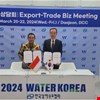
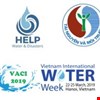
/ Southeast Asia
HELP-GWP Southeast Asia Consultation Meeting on Draft Principles on Investment And Financing For Water-Related Disaster Risk Reduction
Hanoi, 22 March 2019 -- In the Southeast Asia region, prone to many disasters such as cyclones, floods and droughts, many efforts are being made to build capacity, influence policies and develop strategies to better equip member states to prevent and address disaster. Given the need and importance of paying attention to water-related disasters, the High-level Experts and Leaders Panel on Water and Disasters (HELP), drafted ‘principles on investment and financing for water related disaster risk reduction’, which was launched during the 8th World Water Forum in Brazil. Building on a cooperation between the Global Water Partnership (GWP), the HELP and Japanese government, a session on DRR is organized with the main objective to consult on investment and financing for water related-disaster risk reduction principles. This consultation was organized as part of Viet Nam wAter Cooperation Initiative (VACI) 2019 as this initiative is closely related to the VACI’s objectives, which was designed to share and co-create innovative water solution with emphasis on Vietnam and tropical water issues. Keywords: Climate change, disaster risks reduction, investment and financing, Southeast Asia, consultation meeting
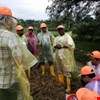
/ Southeast Asia
Malaysia’s Way to Save the River: Strengthening River Rangers’ Capacity
Water is one of the most basic human needs and is now currently facing multifaceted complexity. From depleted ground aquifers to polluted river, water has been for quite some time under pressures due to urbanization, population growth, industrialization and so forth.
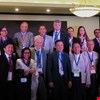
/ Southeast Asia
The 3RD Asia-Pacific Water Summit (APWS) Strengthens Multi-Stakeholders Approach To Achieve Water Secure World
Water is the interconnector of all other sectors; Therefore, it is not possible to support sectors development without understanding the role of water as one of the important development foundation. As important as it is, water is still considered as social goods and do not have value by development actors. This condition has created a very complex challenge for the development of water sector itself. In Asia Pacific region, the complexities of water challenges then urged the establishment of The Asia-Pacific Water Forum (APWF) in Asia Pacific region.
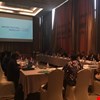
/ Southeast Asia
Water, and Climate Development Program (WACDEP) Regional Workshop Official Press Release
Bangkok, Thailand (12/8/2017). Southeast Asia is particularly vulnerable to climate change for several reasons. First and foremost, in many of these countries large portions of the population live in poverty. The proportion of the population living below the poverty line ranges from the lowest in Thailand at 10.2% to 53% in Lao PDR (ADB 2008). The poor are particularly vulnerable to climate change, as they lack the resources necessary for many types of adaptive actions. With its extensive coastlines, Southeast Asia is also home to many millions of people living at low elevations that are at risk from sea level rise. Moreover, ongoing social and environmental challenges in the region – notably growing income inequality, rising food prices, and widespread deforestation – contribute to social vulnerability and make climate change more likely to bring significant harms.
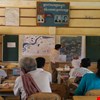
/ Southeast Asia
Awareness Raising on Basin Management Approach
On 28 September 2016, the CamboWP conducted Awareness Raising on Basin Management Approach with 18 participants who are Commune Council Members, Village Leaders and Deputy Leaders and Villagers of the Baray Commune which is located in the Mekong Floodplain.